Half a century gone chasing recognition
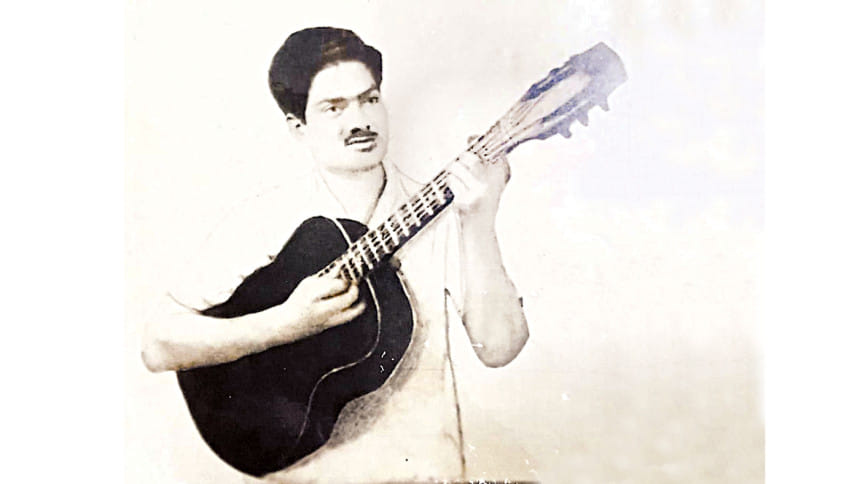
Syed Hafizur Rahman was part of a band of youths who were trained in urban guerrilla warfare to carry out covert operations and strike fear into the hearts of the Pakistan occupation army during the Liberation War.
The Crack Platoon, as they were called, executed a series of high-risk subversive attacks on army convoys and key installations in Dhaka. Their primary mission was to make the rest of the world take note of the freedom struggle being waged by this nation in 1971.
Hafiz, as a member of this guerrilla group, detonated mines in six different locations across the capital to destabilise Dhaka as part of a night raid in June-July.
His expertise in laying mines and ability to plan effective ambushes had earned him the nicknames "Guerrilla Hafiz" and "Mine Hafiz" within his ranks.
With every successful mission of the freedom fighters, the country inched towards glorious independence, but Hafiz was not there to witness the victory as he was tortured and killed by the Pakistan military at one stage of the war.
Fifty-one years have now passed since he answered the call of duty and laid down his life to free his homeland. Many of his comrades also made the ultimate sacrifice during the nine months and were later honoured as martyred freedom fighters.
As shocking as it may sound, this token of respect, which pales in comparison to his sacrifice, was not conferred upon him. Almost all of the martyred guerrillas of the Crack Platoon were honoured with gallantry awards posthumously, but Hafiz was never recognised as a freedom fighter, not even as a martyr.
Between 1974 and 2014, his family submitted eight applications to the state requesting that he be officially recognised as a martyred freedom fighter.
However, for some unknown reasons, each of them was snubbed.
"I don't understand why my brother would not be given the bare minimum of honour even after his fellow fighters witnessed him being fatally punished in a torture cell and his name is explicitly mentioned in the Liberation War documents," said Syed Musaddequer Rahman, Hafiz's younger brother.
The Daily Star obtained copies of every application submitted by four of his family members separately in 1974, 1985, 1990, 1991, 1998, 2010, 2013, and 2014.
Musaddequer, now living in Belgium, told this newspaper over the phone that he submitted the seventh application to the Ministry of Liberation War Affairs in 2013, seeking his brother's recognition as a martyred freedom fighter.
A copy of the Tk 2,000 cheque awarded to the family by Bangabandhu Sheikh Mujibur Rahman in 1972 was attached to the application, along with a recommendation letter signed by Crack Platoon guerrilla commander Golam Dasatgir Gazi, Bir Pratik.
The application was submitted to the then state minister, AB Tajul Islam. Subsequently, the then director general of the Jatiya Muktijoddha Council was instructed to verify the cheque.
When Musaddequer was called over to the council, the director general asked him to show the "training certificate issued by the Indian government".
As Hafiz was killed during the war, the family could not collect any such certificate.
Musaddequer said, "I met the director general with the application. But he told me this application would not be accepted unless we submitted the training certificate from India.
"The director general even told me that many such applications from fake freedom fighters were submitted. He told me to leave the application and that I would be informed later."
The largest collection of the Liberation War documents, "Bangladesher Swadhinota Juddho: Dolil Potro (Volume 10)", details several operations that Hafiz took part in during the war.
On an August night in 1971, a convoy of the Pakistan army was severely damaged by a mine planted by Hafiz near the Asad Gate.
Besides, a Pakistan military truck was blown up by an M16 mine that he had planted on a road in Science Laboratory area.
Hafiz also participated in the Operation Ulon Grid Substation at Rampura under the leadership of Gazi Golam Dastagir in July-August and destroyed a 30/40/50 MV transformer.
On the night of August 29, Pakistan soldiers raided Hafiz's home at 20 New Eskaton. There, they found a large cache of arms and ammunition belonging to the freedom fighters and caught him.
Like the other guerrillas captured that night, he was taken to the Pakistan military torture cell in Nakhalpara, where he was grilled for information about his brothers in arms.
But as he was not one to break, his captors didn't let him return to his family, and his body was never found.
Linu Billah, a Crack Platoon member who was in the same torture cell at the time, said, "It was unspeakable what they did to Hafiz Bhai. His eyes were gouged out, and he was beaten from head to toe.
"At one point, he could no longer endure the torture, so he told his captors to shoot him. All this time, he was unwilling to give away any information."
'A SHAME FOR ALL OF US'
Veteran Awami League leader Mofazzal Hossain Chowdhury Maya, Bir Bikram, another Crack Platoon guerrilla, told The Daily Star, "Hafiz Bhai was a fellow member of the Crack Platoon. I learned from his younger brother that he did not receive the recognition.
"I arranged for Musaddequer to meet the state minister for Liberation War affairs. But I'm not sure what happened after that. The ministry never contacted me to confirm whether I was his fellow fighter. It's a shame for all of us that Hafiz Bhai has not yet received recognition."
Contacted, Syed Mahbub Hasan, the then DG of Jatiya Muktijoddha Council, said, "The training certificate from India is one of the major conditions to get recognition as a freedom fighter. But I cannot recall what happened some 10 years ago. Perhaps there were other documents that were missing. The application was rejected as it did not meet the required conditions.
"I did not have the power to reject any application. Only the council's nine-member committee had that authority. Perhaps, the rejection was their decision."
He added, "There were so many applications submitted at that time that it's impossible to say which application was rejected for what reason."
In 2014, Syeda Anwara Khatun, Hafiz's younger sister, submitted the family's last application to the ministry. There, she faced a humiliating situation.
"An official who received the application asked for the Indian training certificate and enquired about the sector under which Hafiz Bhai fought the war. He also insisted that there was no way to grant recognition without it," she told The Daily Star.
"As we were leaving the office, another official from the ministry told us something that we were not prepared to hear. He said, 'You have been running from one place to another. Just pay Tk 5-10 lakh at the right place, and you will get your certificate.'"
The family, however, never complained about it to anyone.
"We only want to have our brother's recognition as a freedom fighter. We don't want any money or allowance," said Anwara.
Asked whether the Indian training certificate was mandatory for a freedom fighter to receive the state recognition, Waqar Hasan, Bir Pratik, member of the Jatiya Muktijoddha Council, said recommendations from fellow freedom fighters should be enough.
"It shouldn't be a problem if an applicant didn't have the Indian training certificate. It would be unjust for the council to reject an application with all the other supporting documentation."
The DG of Jatiya Muktijoddha Council has no authority to reject any such application. There is a nine-member committee that has the jurisdiction to approve or reject an application, he told this newspaper yesterday.
"It is regrettable and shocking that such a courageous freedom fighter has not gotten the recognition he deserves," Waqar added.
Former state minister Tajul Islam could not be reached over phone.
Asked why Hafiz did not get the state recognition despite the eight applications, Liberation War Affairs Minister AKM Mozammel Haque yesterday said, "The recommendation from fellow freedom fighters alone is enough for state recognition."
He added, "I don't know why the family's applications were rejected every time in the past. But, if they submit a fresh application now, we will take the necessary steps."

 For all latest news, follow The Daily Star's Google News channel.
For all latest news, follow The Daily Star's Google News channel. 

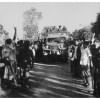

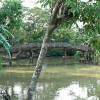
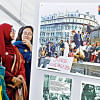


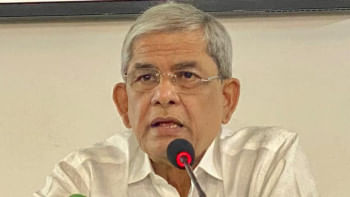
Comments